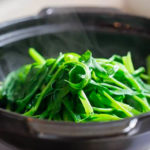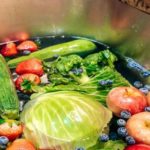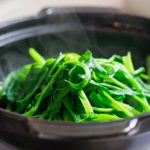Add salt when boiling vegetables
When boiling vegetables and you want them to stay vibrant green, you should add a pinch of salt to the boiling water. This method will make your vegetables more flavorful and aromatic. Additionally, the boiled vegetables will become much more appealing to eat. However, when adding salt to the boiling water, be careful not to add too much as it can diminish the flavor of the green vegetables.
Add a little cooking oil
When boiling green vegetables, adding a small amount of cooking oil will make them look shiny, glossy, and more appetizing. Moreover, a little cooking oil will help your vegetables retain their freshness and heat, making the eating experience much more enjoyable.
Furthermore, if you want your vegetables to be even greener and more appetizing, remember the following tips when boiling vegetables.
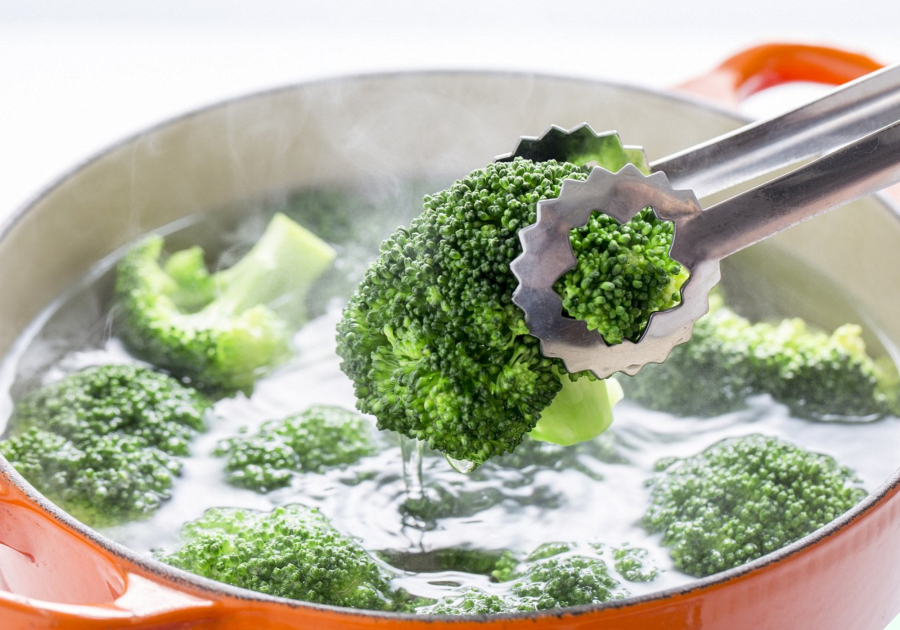
Avoid boiling vegetables immediately after cutting them
Many people, after picking, washing, and cutting vegetables, do not immediately boil them. However, this habit causes the vitamins in the vegetables to oxidize and lose a significant amount of nutrients. Therefore, it is best to boil the vegetables immediately after cutting them. This not only preserves the nutrients but also ensures the sweetness and deliciousness of the dish.
Avoid boiling vegetables at low temperatures
One of the tips to make your vegetables vibrant and appetizing is to boil them at high temperatures. If you put the vegetables in the boiling water when it is lukewarm or not yet boiling vigorously, the vegetables will turn yellow and lose a large amount of vitamin C and B1. Therefore, you should boil them at high temperatures to reduce the amount of vitamins that dissolve in the water.
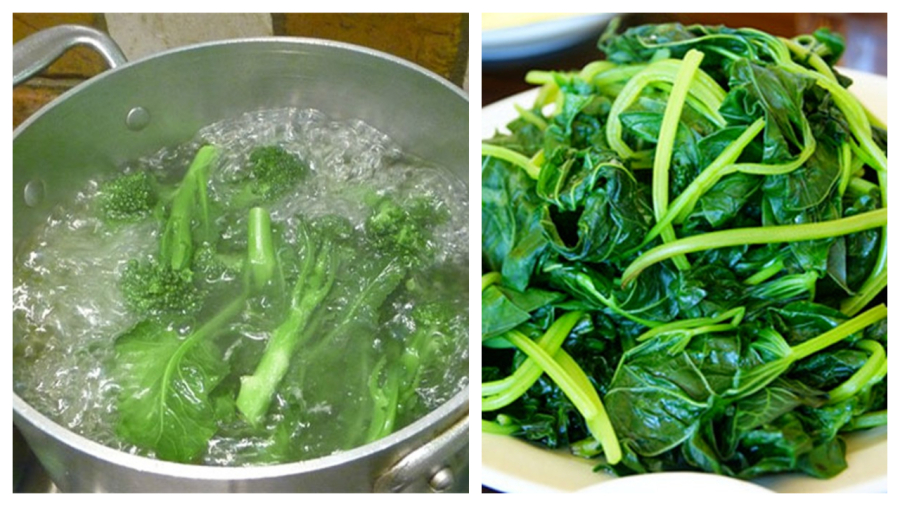
How to boil vegetables correctly?
Add a teaspoon of salt to the water, turn on the heat, and wait until the water is boiling vigorously before adding the vegetables. This method will help you retain the maximum amount of nutrients in the vegetables. Moreover, the salt will help maintain the green color of the vegetables and prevent the loss of vitamins through evaporation.
– For root vegetables such as carrots, potatoes, etc., you should cut them into small, evenly-sized pieces. The food will cook quickly, retaining more nutrients and being crispy and delicious.
– When washing vegetables, avoid scrubbing them too hard and instead, gently rinse them with clean water.


























